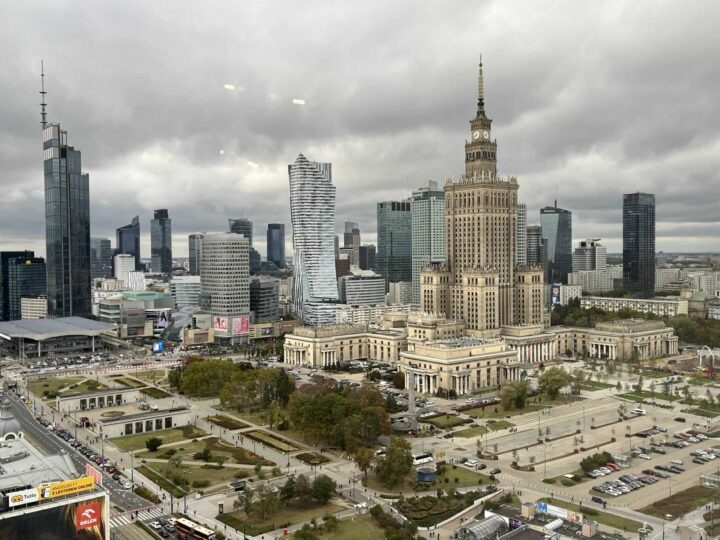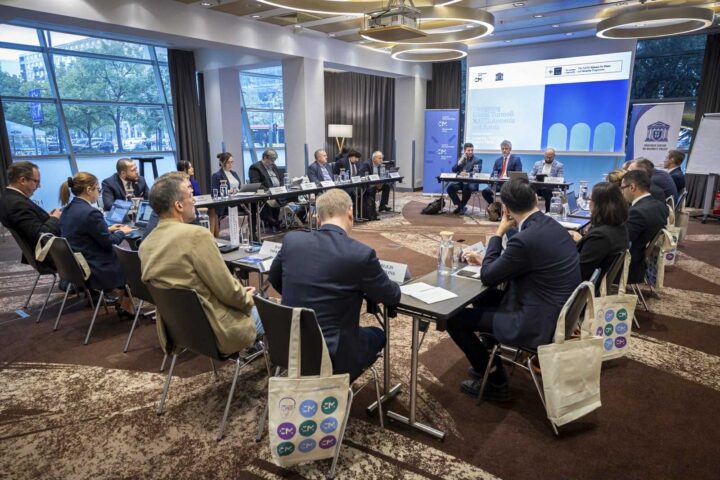10 oktober, 2025
Quick Impressions: Insights from Warsaw on Armenia and NATO
By Jakob Hedenskog
With Russia’s influence waning and NATO’s presence along its Eastern Flank growing, Armenia is emerging as a key player in the security of the South Caucasus. The country’s strategic position and recent initiatives make its partnerships, particularly with NATO, more important than ever.

Photo: Jakob Hedenskog
The Polish Mieroszewski Centre, together with Armenia’s Research Center on Security Policy (RCSP), hosted the international workshop “Strategic Dialogue: Armenia – NATO’s Eastern Flank” in Warsaw on 6–7 October. The event, supported by NATO’s Science for Peace and Security (SPS) Programme, brought together leading experts, analysts, and policymakers to tackle pressing regional security challenges.
Designed as a strategic dialogue, the workshop offered a unique platform for exchanging insights, sharing experiences, and developing practical recommendations. Participants from Poland and other NATO members states, including Türkiye, as well as from Armenia, explored ways to strengthen cooperation and adapt to a rapidly changing security landscape.
Key insights emerging from the workshop:
- Promising prospects for a deeper NATO-Armenia partnership
As one participant observed: “The world has changed, but the South Caucasus has changed even more.” NATO is responding to emerging challenges in its eastern neighbourhood by shaping targeted partnership strategies. Armenia has recently signalled its intent for closer cooperation on areas such as border management, cybersecurity, critical infrastructure, doctrines, and operations. Aligning with NATO standards is not optional for Armenia; it is a strategic necessity, and part of Yerevan’s broader foreign policy diversification that also includes partnerships with the United States, China, and the United Kingdom, as well as the EU, Iran, and India. Importantly, Armenia has never expressed a desire to join NATO and remains cautious not to provoke Russia or Iran. - Encouraging signs in Armenia-Türkiye normalisation dialogue
One of the workshop’s most significant achievements was providing a platform for dialogue between Armenian and Turkish representatives. While Russia’s large-scale war in Ukraine has wrought devastation, it has also created new openings in the South Caucasus, though these opportunities may be fleeting. Full diplomatic and economic relations between Ankara and Yerevan require a peace treaty between Armenia and Azerbaijan, with progress facilitated by the Washington Declaration of 8 August 2025. The Armenian parliamentary elections in June 2026 may further narrow this window of opportunity, as the incoming prime minister could be less inclined to compromise. Additionally, a potential ceasefire (albeit unlikely under current circumstances) in Russia’s war against Ukraine might allow Russia to redirect resources to the South Caucasus. - Strengthening Armenia’s resilience against election manipulation
Experiences from the recent parliamentary elections in Moldova underscore the need for Armenia to bolster its resilience ahead of its own elections against Russian disinformation and hybrid threats. EU and NATO member states should intensify efforts to help Armenia counter Russian propaganda and illegal election interference, enhance information security, strengthen public trust, address vulnerabilities, and reinforce centre-periphery relations across the country.

Photo: Mieroszewski Centre/Research Center on Security Policy (Armenia)/NATO Science for Peace and Security Programme